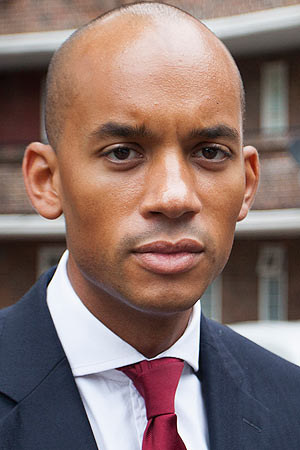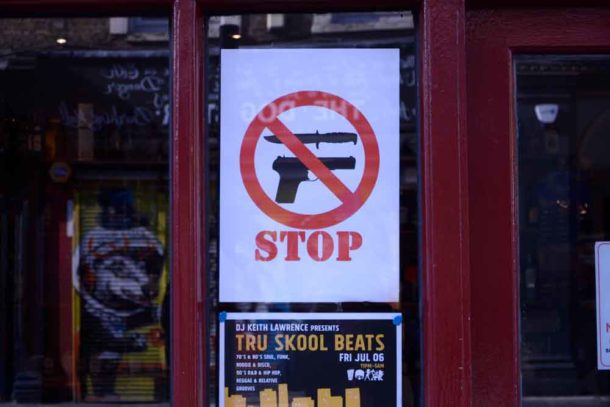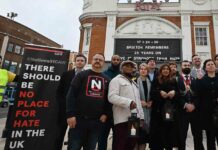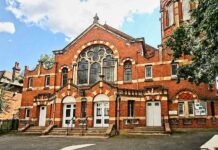
Local MP Chuka Umunna will this evening (21 August) make a speech in Brixton, asking why, after a decade of deaths and injuries, Westminster is still failing to provide the leadership needed to save lives being lost to serious youth violence.
He will say solutions to the issue that were suggested after the 2011 riots have been left “to gather dust” in “a damning indictment of British politics”, He will also call for a new “social contract” between young people and society.
The MP for Streatham, whose constituency includes parts of Brixton, is a member of the government’s serious violence taskforce.
He will be speaking at an event in the Department Store on Ferndale Road that will feature responses from London deputy mayor for policing and crime Sophie Linden, National Union of Students president Shakira Martin and retired Metropolitan Police superintendent Leroy Logan.
The MP will set four strategic priorities to empower young people and help create a path away from violence:
- Building community capacity to turn young people away from violence
- Investing in youth support and services
- Increasing access to opportunities
- Reforming the criminal justice system.
Chuka Umunna, a former garage DJ himself, will also talk about the need for a “zero tolerance” approach to drill music videos that incite and encourage violence. But he will say that a ban on drill music is not practicable, nor would it halt violence.
He will say that solutions to the problem of youth violence were set out in a report on the August 2011 riots.
“Most of the solutions to end serious youth violence can be found in the Riots Communities and Victims Panel report into the August 2011 riots.
“That was a different series of events, involving a wider demographic of people, and yet so many of the causes and the solutions identified there were the same.
“Had there been the political will to properly act on the lessons learned from the August 2011 riots and to properly implement all of the panel’s recommendations, instead of leaving that report on a shelf to gather dust, we would not be seeing the amount of bloodshed on our streets today.
“It is a damning indictment of British politics.”
On recognising individual and community responsibilities, he will say: “My main argument: the Golden Rule – that you do not do to others what you would not want done to yourself – is a two-way street.
“We provide young people with an environment in which they can thrive; they abide by the norms, rules and values of society of which they are a part.
“This mutual obligation between society and young people has been broken. There can be no excuse for the violence, but we won’t end it unless we renew this social contract.”
On the failure of today’s politics to respond, he will say: “The populism of left and right both here and in Europe has reduced politics to simple, black and white, tweetable answers to every problem.
“One side thinks the answer is to throw money at the problem and pull the levers of state. The other argues for ever tougher sanctions.
“Nothing illustrates the futility of these responses more than the issue of serious youth violence, which is a complex and a very modern phenomenon.
“Instead of relying on old solutions that don’t work, we need a paradigm shift in our understanding of serious youth violence and in the action we take to stop it.”
On the need for a public health approach to youth violence he will say: “The solution will be community building that is community-led. It will be state-supported. A multi-agency, national programme to transform the left-out areas of our cities.
“It will require national leadership from the centre which should set a framework. In the Youth Violence Commission’s interim report, we endorse the public health model, based on the World Health Organisation’s principles of treating violence like a disease, which has been used very successfully in Scotland.
“You cannot deliver that model without whole-system, cultural and organisational change with sustained political backing.”

On the role of drill music, The MP will say: “Drill music came out of South Chicago and has been re-made in South London. It’s bleak and nihilistic.
The young people producing it say it provides a commentary on real lives, on the street, however uncomfortable we may find this. Be in no doubt: these are commercial operations that make money.
“The intelligence I receive from the police locally and nationally supports claims that the content they produce can trigger and incite further violence.
“Reciprocity means the drill groups who are now looked up to by young people have to end their tit-for-tat violence or lose the opportunity to make money. It’s as simple as that.
“We should require social media companies to adopt a zero-tolerance approach where their content incites violence.
“But I do not believe banning this music outright is practicable nor will it stop the violence.
“There needs to be a dialogue with these groups on how they can set a better example – carrot and stick. Above all, I would like to see us provide other pathways and opportunities for young people to use their creative talents and to pursue positive enterprise.
“Many business people complain about the difficulties involved in getting finance to start a new business – you try doing so as a young person living on one of my estates. Impossible.”



